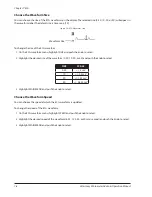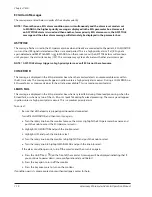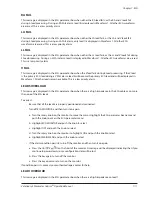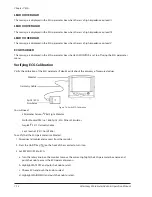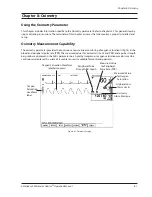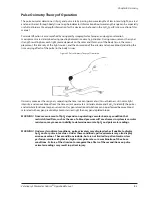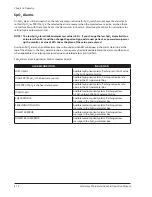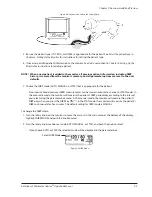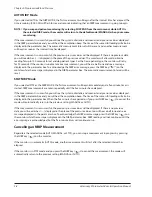
Chapter 8: Oximetry
8-6
Veterinary 3 Parameter Advisor
®
Operation Manual
Mini Clip (V3078)
The Mini Clip is similar to the Universal ‘Y’ Sensor, but less than a quarter of the size of the lingual clip. The smaller
clip is effective on small breeds and especially on smaller cats. The clip will work on a cat’s ear, tongue, and toe
webbing. The Mini Clip also works well on larger animals.
Figure 8.5: Mini Clip Sensor
Small Reflectance Sensor (V1700)
Use the reflectance sensor if you are performing a dental procedure or any oral work that precludes the use of
the lingual clip. Clean the reflectance sensor by wiping it with isopropyl alcohol or chlorhexidine.
Place the reflectance sensor on the ventral base of the tail. The LED’s should be positioned dorsally. You may
need to clip a small patch of hair, only large enough for the LED’s to lay on the skin. Be sure the skin is clean. Hold
the sensor snugly against the tail and wrap with non-adhesive wrap.
Figure 8.6: Small Reflectance Sensor
When using the sensor in the rectum, a thin coat of lubricant can be used. Remove existing feces. Slightly rotate
the sensor to ensure that the LED’s are touching tissue and not fecal material. You do not need to anesthetize the
animal when using the reflectance sensor.
Figure 8.7: Reflectance Sensor
This sensor may be used in the esophagus or cloaca of reptiles and large avians.

